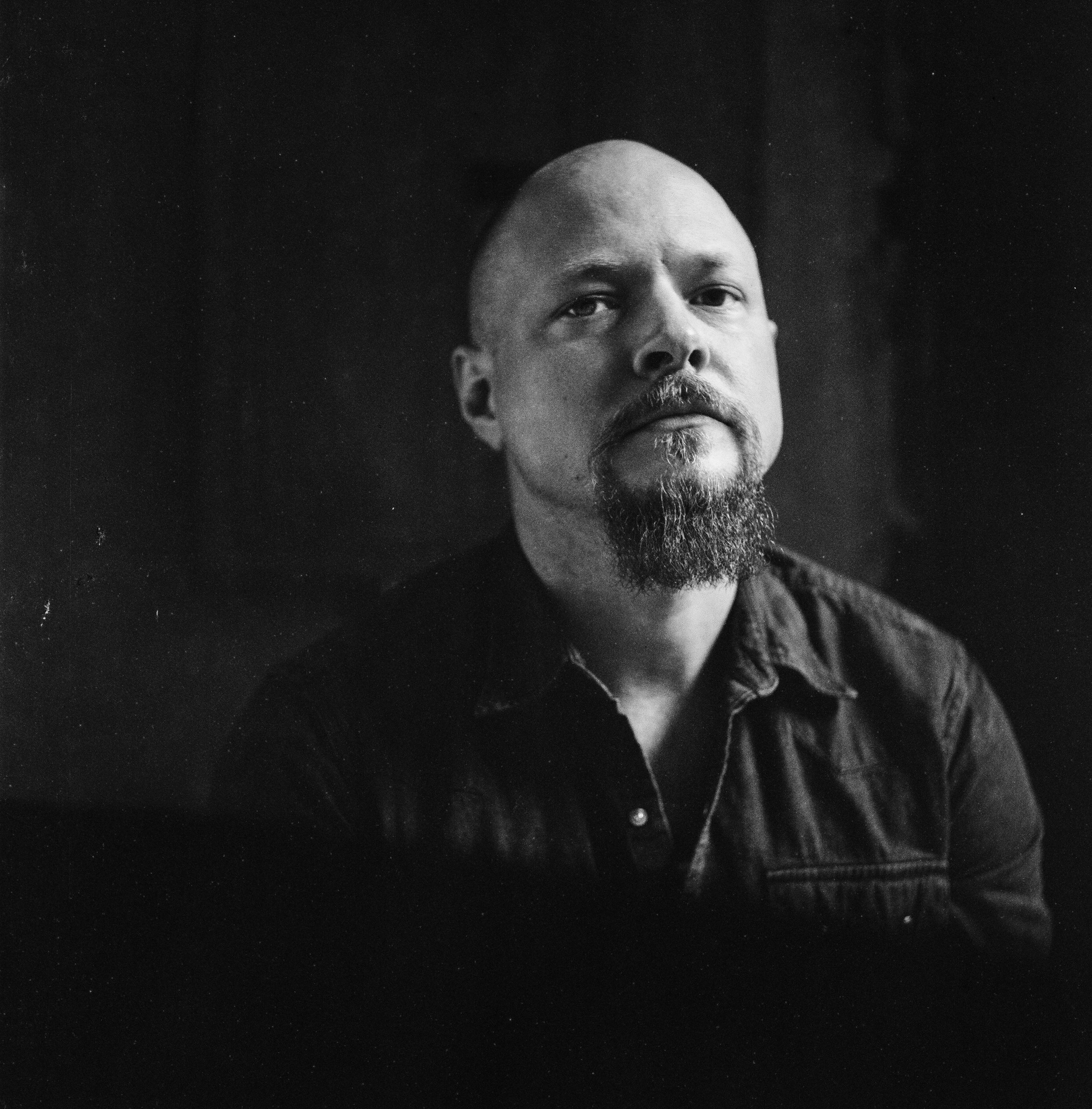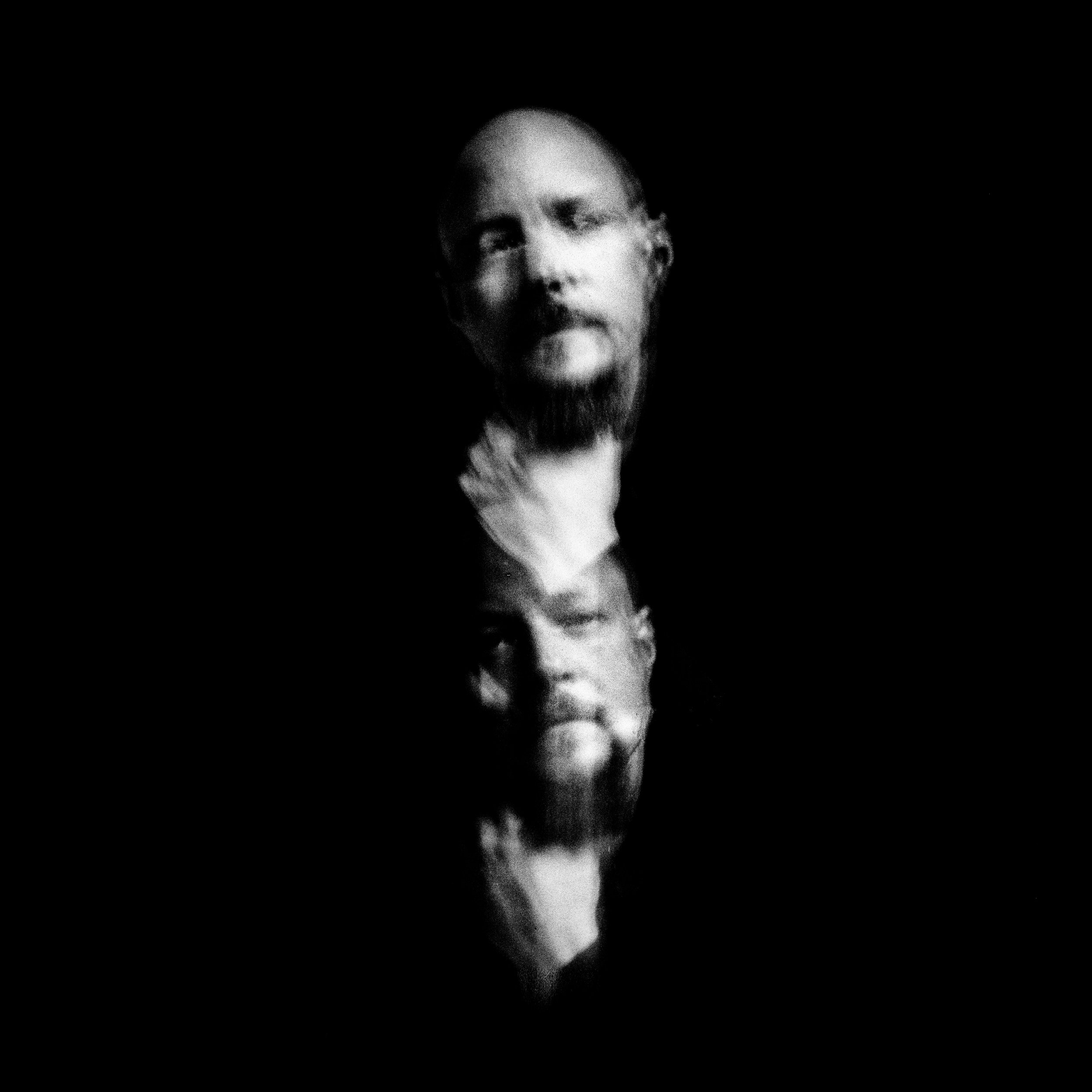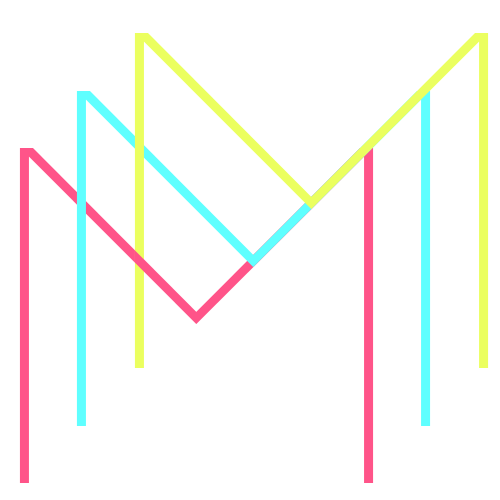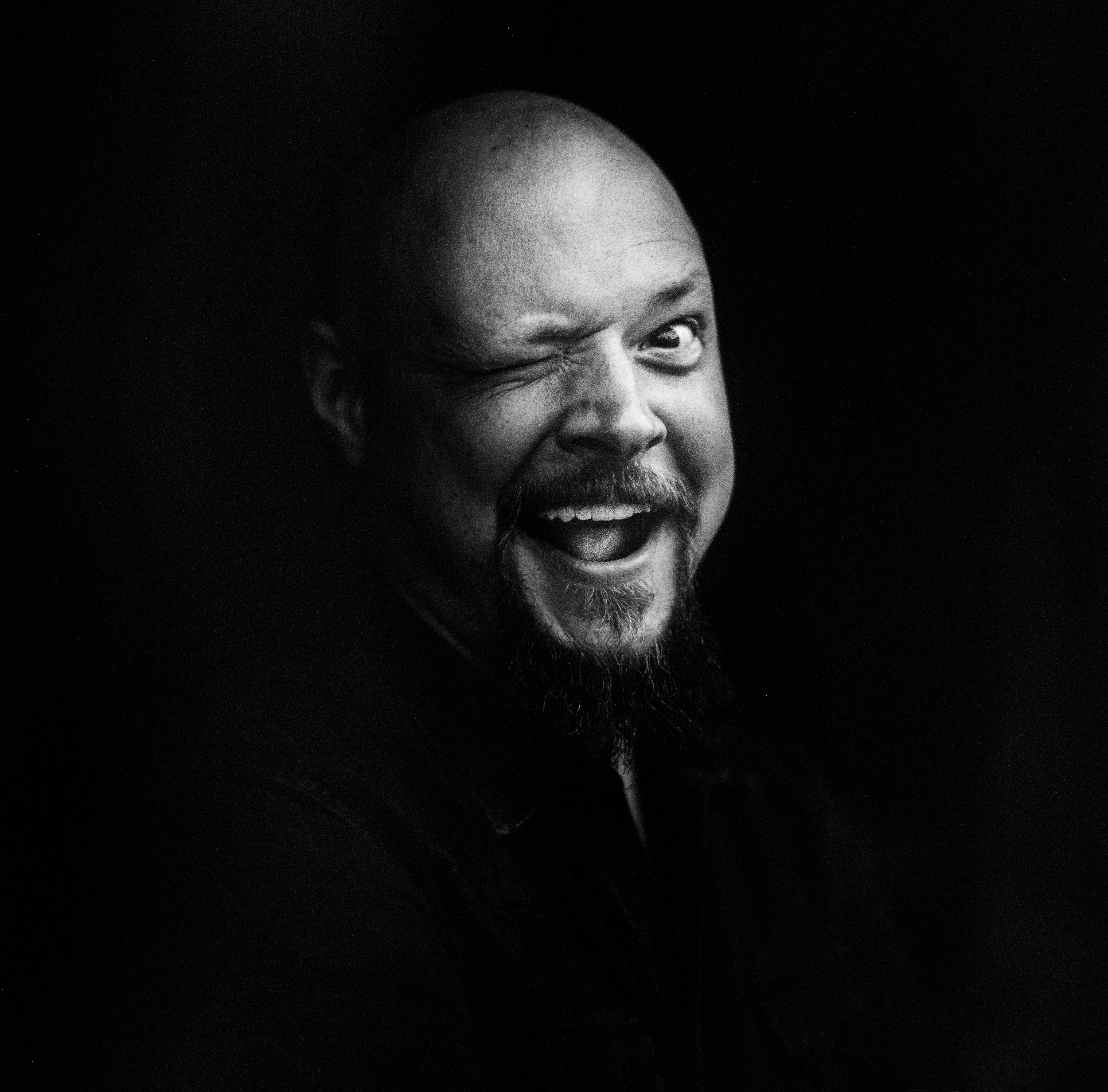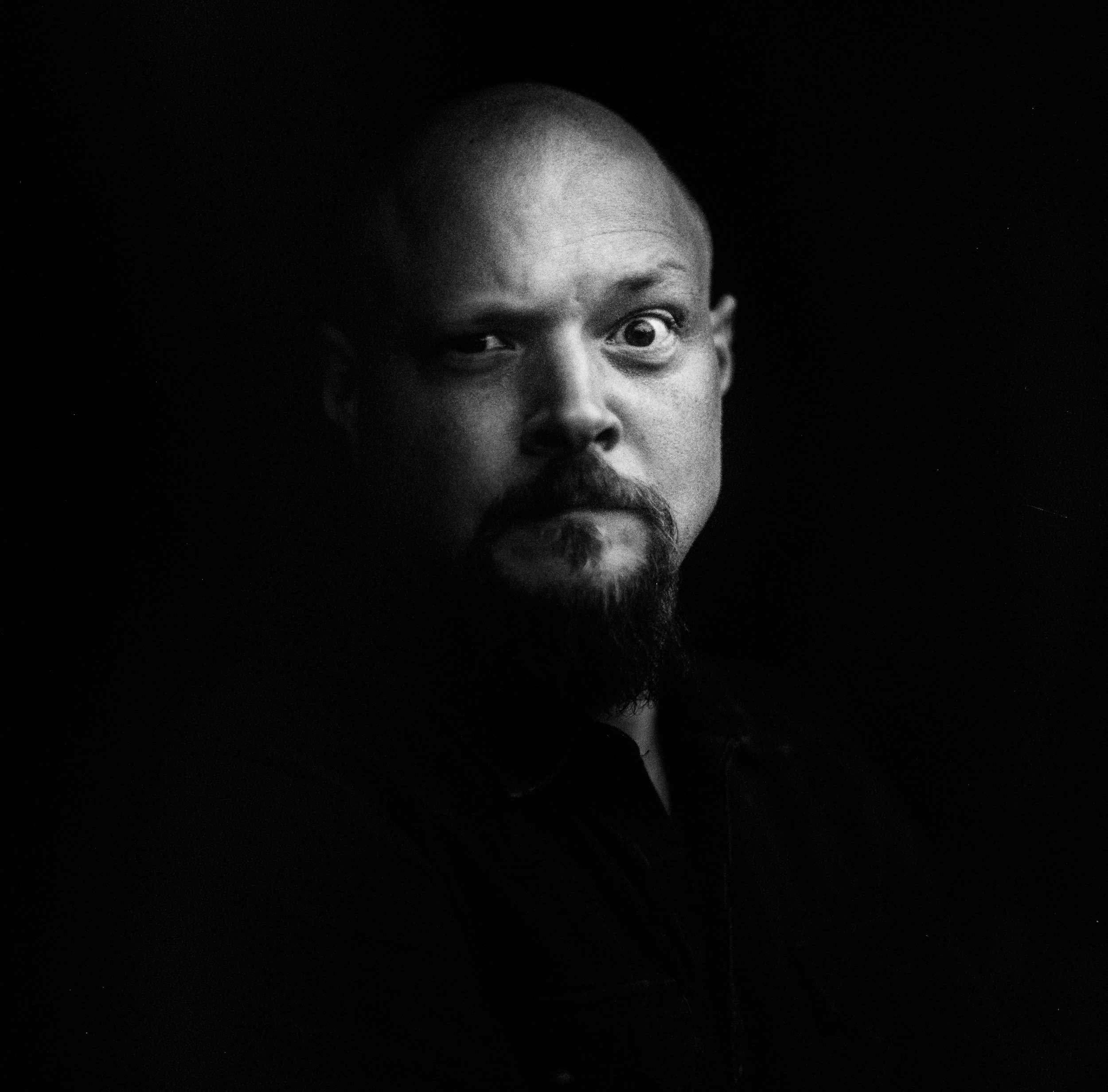Nate Richert
Interview: Oli Sansom
Photography: Oli Sansom
My first performance, at age 7, was a tap dance to the Cole Porter tune Walking My Baby Back Home and I’ll be damned if we all didn’t hit every shuffle ball-change and cane tap.
Nate Richert: Songwriter
Los Angeles / August 2016
For those who didn't grow up watching Sabrina
the Teenage Witch, Nate Richert enjoyed a seven-season stint as the future-husband of planet earth's teen-girl population, Harvey Kinkle.
Fast-forward some 20 years, and the first page of a cursory google search is saturated with inch-deep “where are they now” pieces as the gangrenous pulsating mass we know as the internet drunkenly tries to reconcile a musician who’s de-cowlicked facade now attracts screen role offers more along the lines of Mexican gang-bangers. Standard artistic evolution story, but it makes for some great twitter banter between Nate and fans.
Every artist starts as a “mannequin” - bare, and in silent competition against the narrative of the struggling artist, and so enjoying creative success, while sometimes coming from pure intent, is often more the product of haphazardly pulling different sets of levers, putting in the hours, and... just holding on.
What this usually means, is that there's rarely any such thing as "specialisation", and any performer will have several long-standing arrows in their bow that we might not enjoy until much later.
And there's a beauty and purity in the story of an artist involved in something as profoundly bizarre as a role reaching pop-culture, and the truer version of self being found in the comparative solace of a more niche genre of musicianship.
So what better chap to start this series with than Nate Richert - Americana musician, and one-time Harvey Kinkle.
Nate / Sabrina the Teenage Witch
Nate Richert / Let Me Be Your Fool
Where did your initial spark to create come from?
I collected a ton of records of all kinds from yard sales when I was a kid and still do. My favorite toy was always a record player.
I think the main game-changer for me was when my parents enrolled me in Larkin Dance Studio when I was seven years old. I went three nights/week after public school for four hours. Six hours on Saturdays. It was very strict and I became very disciplined to think in an eight-count.
Five, Six, Seven, Eight, go!
Strength, posture, and rhythm.
I was there from 1985 to 1995. I was exposed to a pretty wide variety of music there, from Prince to The Guess Who to The Village People.
My first performance, at age 7, was a tap dance to the Cole Porter tune Walking My Baby Back Home and I’ll be damned if we all didn’t hit every shuffle ball-change and cane tap.
About that same time, my mother and younger sister were doing community theater.
A mother of one of the other younger actors suggested that my sister meet with a youth talent agency in Minneapolis, Minnesota. I was just along for the ride but they signed us both up and my sister and I began auditioning. Commercials mostly.
My sister, she’s a nurse in Milwaukee now, had her first gig in a “Northwest Airlines” commercial at age four, and mine was an “US Armed Forces” spot at age seven.
When I was around ten, I was in a spot for the card game “Uno” where I played a very realistic “cave boy” in a family of “cave men” and a primal urge to be an actor was sparked in me. I remember cracking up the director and crew, sniffing the cards and bouncing around like a primate, and it was so much fun.
Because of all the rigorous dance training and the opportunities in the acting field experimenting with characters and emotions that began at such an early age, there is a part of my brain that is simply hardwired for this. I need it.
Sometimes I hate that I need it and I do anything else just to prove to myself I don’t.
But, in the end, there’s nothing for me that will ever compare to entertaining.
Being a part of a story that makes those watching and listening really feel something, particularly joy and laughter, is what makes the world go round for me.
The standard “song and dance” bio really. Got the bug, fell in love, moved to LA, blah blah…
The mixture of apparently simple, and at the same time super expressive is totally appealing with your tunes (and the reason i got in touch in the first place), how were you drawn to that genre?
Music sellers have sub-subgenres for subgenres for genres and it’s all a bit confusing. I think I play “Americana” in that I tend to encompass several older American music genres but “Americana” seems to be a generalized subgenre of “Country.”
I tend to interpret musical genre in terms of the decade it came from, in that the sounds I like to incorporate into my music is roughly 1940’s to 1970‘s American music of the 50’s-60’s bluegrass, 20’s-60’s jazz, 20’s-70’s blues, 60’s folk, 40’s-60’s country, and 50’s-70’s rock ’n' roll and 70’s funk varieties.
I also like to sneak in some 40’s-60’s Ranchera music.
Getting back to your question though, I like to feel a nostalgia in the music. That’s how I got there. Wherever that is. I love when people hear my tunes and ask who wrote them because they’re sure it’s an old standard or something. I like to write old songs because that is the music I am drawn to and listen to daily. I think maybe that’s what makes them approachable?
I hope so.
I imagine building audience trust in order for viewers to connect with a screen character is a much different game to getting listeners to trust a story or buy into a character in music. How do you approach authenticity in your music, and how has being an actor supported this?
Again, in my experience, it is actually tough to discern a substantial difference. Obviously, a primetime tv show is going to provide a much larger and readily available audience. That being said, with a screen character, you have the benefit of writers, cast, and a crew that is literally trying to put you in the best light, whereas, in music, I (usually) have the benefit of accompaniment. I’ve been fortunate enough to have had receptive audiences in both fields.
Where authenticity is concerned, in my songwriting and acting, I love to emulate the characters, music, vibe, style, emotion, etc, that I have always been drawn to in actors and songwriters I grew up seeing and hearing.
I know, I just said my authenticity is derived from copying others. But I’m really sharing what I’ve developed out of osmosis and that which has become part of me.
My authenticity is derived from recycling. There. Much better.
I feel like the romance of seclusion and benefits of creating in solace get a little bit lost in the noise of collaboration culture. It's very much one or the other, with little room for discussion comparing the benefits and relationship of both. What are your thoughts on creating in isolation vs creating in a group?
There’s a saying I learned as an actor: hurry up and wait.
Because you’re not in every scene and rehearsal and shooting schedules change at a moments notice, actors have downtime.
Alone in your trailer with a broken tv, a notepad, a pencil, and a Baby Taylor guitar. Sometimes nine hours because they changed the schedule the night before and forgot to tell you not to come in. This is prime time to write songs and sketches and do sit-ups and take naps and call your mother.
This is where I first started trying out my voice more and writing songs, in isolation.
When I work out a song by myself, I innately hear other parts in my head. That’s all fine and good but, when I play the song for my musician friends, most of the time their ideas and impressions are sometimes very different and what makes the song bigger and better and more alive to me. Usually more so than if I tell them what to play.
Isolation, for me, is the way I prefer to write but the instrumentation tends to improve when my friends come in.
What have been some triggers in developing a new body of work?
Sometimes it’s pure daydreaming, sometimes it’s intense focus. Sometimes I have a thought for a song or songs that I have to compulsively hammer out immediately. Sometimes I have a line here, and a line or two there, and they come together like puzzle pieces at a later time.
Some triggers are good, some triggers are bad.
I’m working on letting go of overthinking and over criticising and not making things so precious because when those thoughts gain ground they stunt my diligence. I’ve stepped back as not to smother the baby too many times and chased away my muse in doing so. It can be a delicate balance.
How artists use social channels to further or cede their cause varies enormously. One thing apparent to me was a lack of available content online, and maybe, a reluctance to take the road-well-travelled by leveraging your profile from within acting.
I have shied away from using social media in the past. Partially because I’m older and I’ve seen the growing psychological impact it’s had on people as the technology has developed, partially because I did want to distance myself from the character I played as it did curb my acting career - and my music is obviously far from that character.
But I’m learning and adapting and, with social media, the blending of mediums is becoming more palatable.
I think a root struggle for me has been incorporating myself and showcasing what I do, that it is homogenous rather than wholly dividing my activities into “just acting” or “just music.” I’ve really got to thank you for this because it did force me to examine and justify my endeavors as I really do see them: different bones of the same critter.
Nate Richert / Anything Else But You
How does the way you prepare yourself for these live experiences, where you’re connecting with folks in one moment differ to that of immersing in a single screen role
Jerry Garcia (Grateful Dead) is noted as saying “Making a record is like building a ship in a bottle. Playing live music is like being in a rowboat in the ocean.” I wholeheartedly agree.
The bulk of my screen roles have been in comedy, specifically sitcom, where you are essentially telling jokes so, as in live music, you get a direct response from your audience. Even if there is no “live audience” you still get to try and crack up the crew.
There’s your ocean. For more serious roles, there is definitely a different focus which requires more foresight and concentrated intensity.
Like building a ship in a bottle.
Success can most definitely be like a drug. It can be intense, vigorous, terrifying, profound. Then it wears off. You may have some withdrawal symptoms but, in the end, you are still you. Any lasting effects are built on who you were before it happened.
Pharrel talks about disparate things within one medium feeding the whole. How have you seen this play out cross-medium, over your acting to music?
I really don’t see music and acting as disparate, but homogenous mediums (thank you thesaurus.com).
Picture a dramatic scene from one of your favorite films.
There’s a score playing behind it.
That music is the ocean and the dialogue is floating on it. Think of your favorite song and close your eyes. What images do you see that the lyrics are giving you? How about that rimshot at the end of a joke on Johnny Carson? Jokes are very rhythmic. There’s a tempo and beat to the words and that rimshot is punctuating what was already happening.
Watching a great improv actor is no different than listening to improvisational jazz.
I’ve heard great dramatic actors say they have had a particular tune in their head during a scene to guide them through their emotions. Influencing the mind through the senses is all it is.
It’s like smelling your favorite dish and salivating.
Definitely, yes it has.
I’ve gained honesty and storytelling in my music through acting, rhythm and cadence in my acting through music.
How has your experience in film shaped how you deliver your own imagination and spark the imagination of others?
On “Sabrina...” we had such an amazing crew who really wanted us kids to know as much as we could about every aspect. There was a particular camera operator, Pat McGinness, who would say, “Hey, come here.” and he would have me sit on the dolly, eye up to a Panavision camera. He would explain some of the inner workings, functions, and lenses in detail, and even quiz me on it later. He taught me how to hit a mark, play to a camera, and how to know my framing. Experiences like that instilled in me symbiosis in a collaborative effort. How knowing a bit of camera made his job easier and me a stronger actor.
I’ve recently been producing and directing some sketches and also some scenes for some aspiring actors looking to beef up their actor’s reels. I like being able to pass that along to some of these actors I’ve been working with, many of them being strictly from theater and really having little or no on-camera experience. I was surprised by how much I retained and it feels good to pass that along.
What's something to keep in mind when considering
a large creative opportunity?
This too shall pass.
Special thanks to Caroline & Jayden of Light Lab for use of the space, and the sexiest bathroom in Los Angeles.
"The way I see it, creative fulfillment is when your soul is fed by your art. Creative success is when good people who like your art feed your belly. You can live for around three weeks on creative fulfillment alone, whereas, creative success alone might make you
an asshole."
Follow Nates' Music
There might be more
Find out first when new instalments are released, subscribe using this very large obnoxious pink button below.
To commission images for your band or solo act, book Melbourne Music Photographer Oli Sansom.


